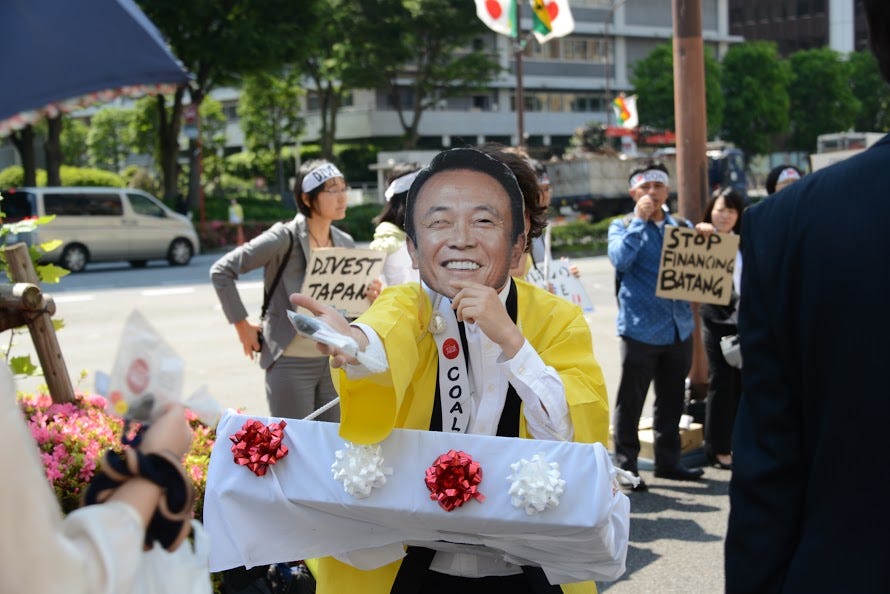- Blog
- Sustainable Economic Systems
- International Sustainable Finance
- Despite protests, Japan gives lifeline to dangerous fossil fuel projects
Despite protests, Japan gives lifeline to dangerous fossil fuel projects
by Kate DeAngelis and Jenny Bock
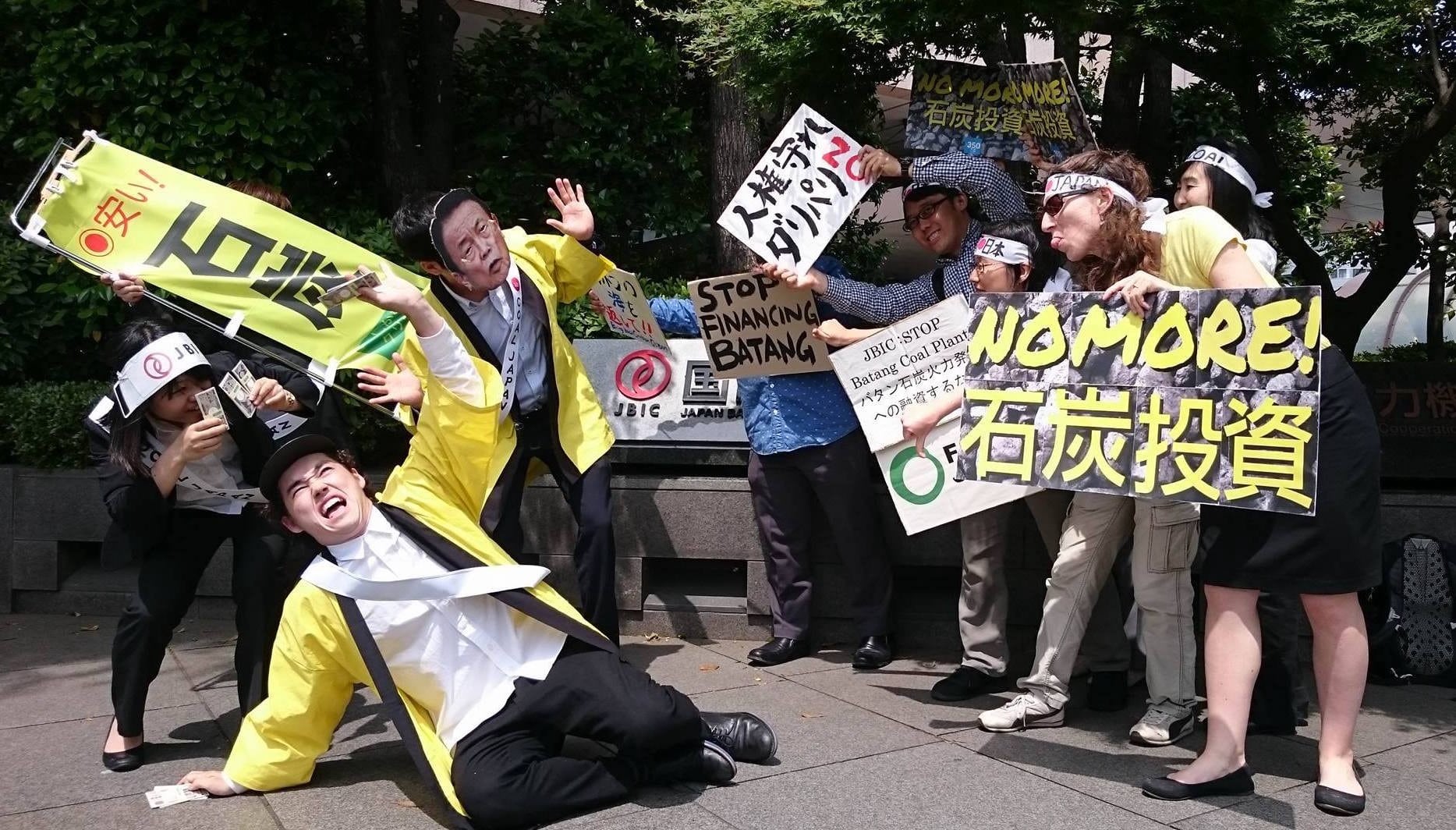
Donate Now!
Your contribution will benefit Friends of the Earth.
Stay Informed
Thanks for your interest in Friends of the Earth. You can find information about us and get in touch the following ways:
As other countries move away from coal and increase their renewable energy capacity, Japan is doubling down on fossil fuels, and continues to heavily finance coal and gas projects both domestically and all over the world. Japan is doing this at a time when scientists’ warnings are becoming more dire about the impacts of climate change and the need to immediately shift to renewables. Earlier this year, scientists found that to have a 50 percent chance of avoiding the worst impacts of climate change, no new fossil fuel-fired power plants can be built after 2017.
Support for the controversial Batang project in Indonesia
Just last week the Japan Bank for International Cooperation (JBIC), a Japanese government agency, announced its decision to provide public finance for the Batang coal-fired power plant in Central Java, Indonesia. JBIC had delayed the decision ahead of the project’s financial closure deadline on April 6, 2016. The timing seems suspicious — JBIC delayed a controversial decision ahead of the G7 Summit when all eyes were on Japan, and the country was already receiving a lot of pressure about its coal support. Then Japan quietly announces its support for Batang once the G7 leaders had gone home.
The Batang project is already riddled with human rights abuses and seizure of local communities’ land without any mutual agreement. These impacts will only get worse as the project moves forward. In addition, this project will result in tremendous increases in local air and water pollution, as well as contribute to global climate change. JBIC’s decision to finance Batang also ignores the opposition to this financing of more than 230 civil society organizations and the millions of members worldwide that they represent. Protests have also occurred in the United States, Indonesia and Tokyo against Batang and other fossil fuel projects that Japan is considering financing.
People all over the world are taking action to demand Japan stop financing fossil fuels and halt the Batang coal project. — Jenny Bock, economic justice campaigner; #StopBatangCoal.
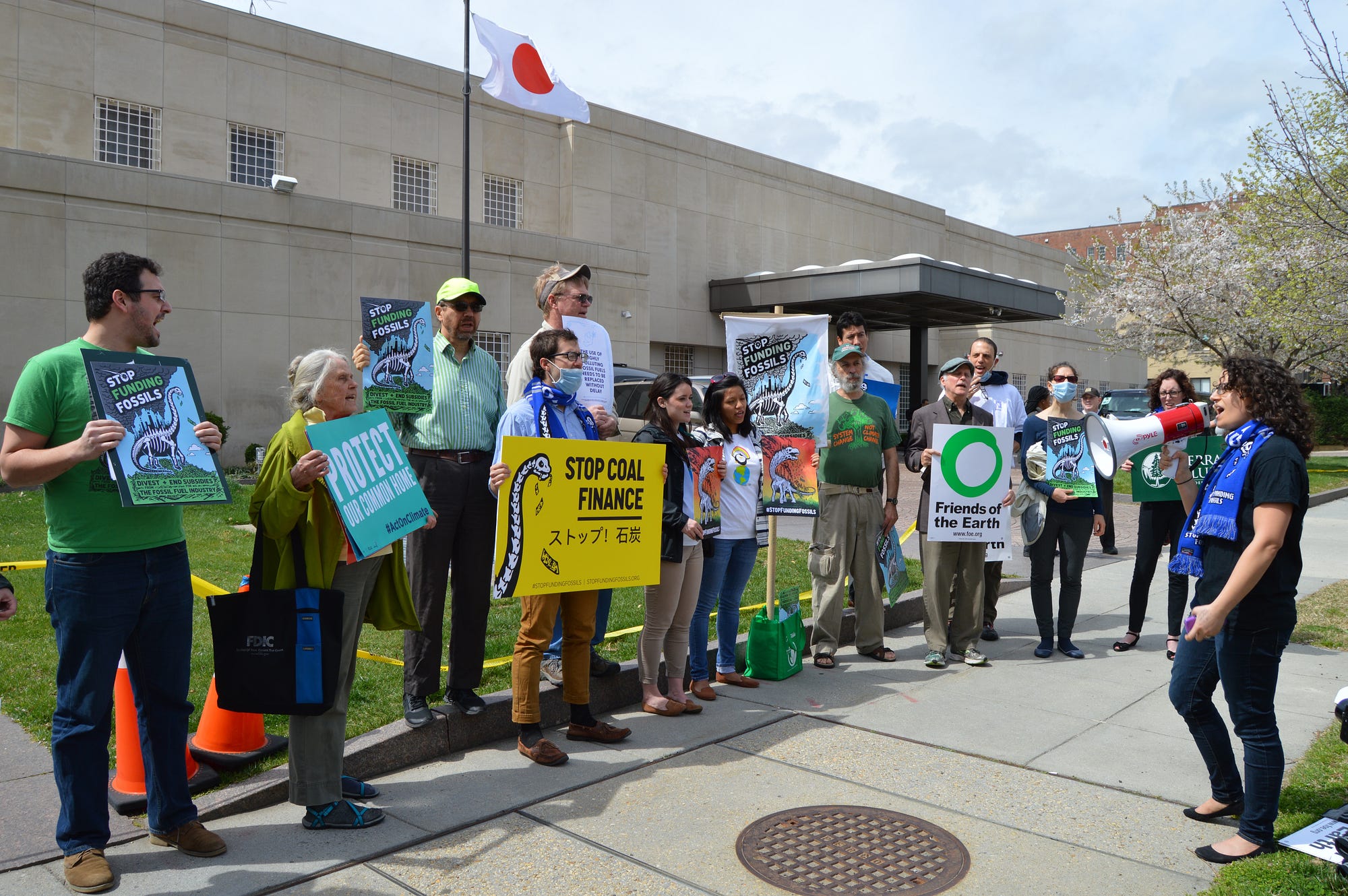
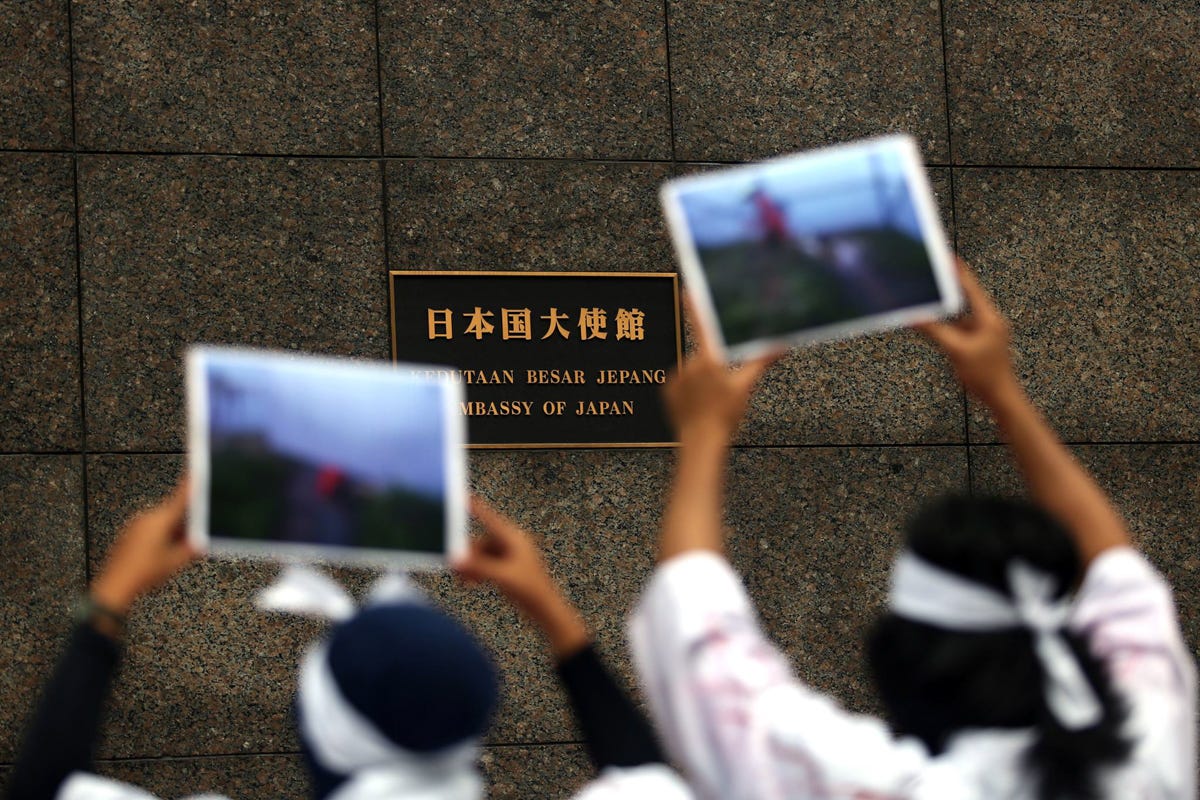
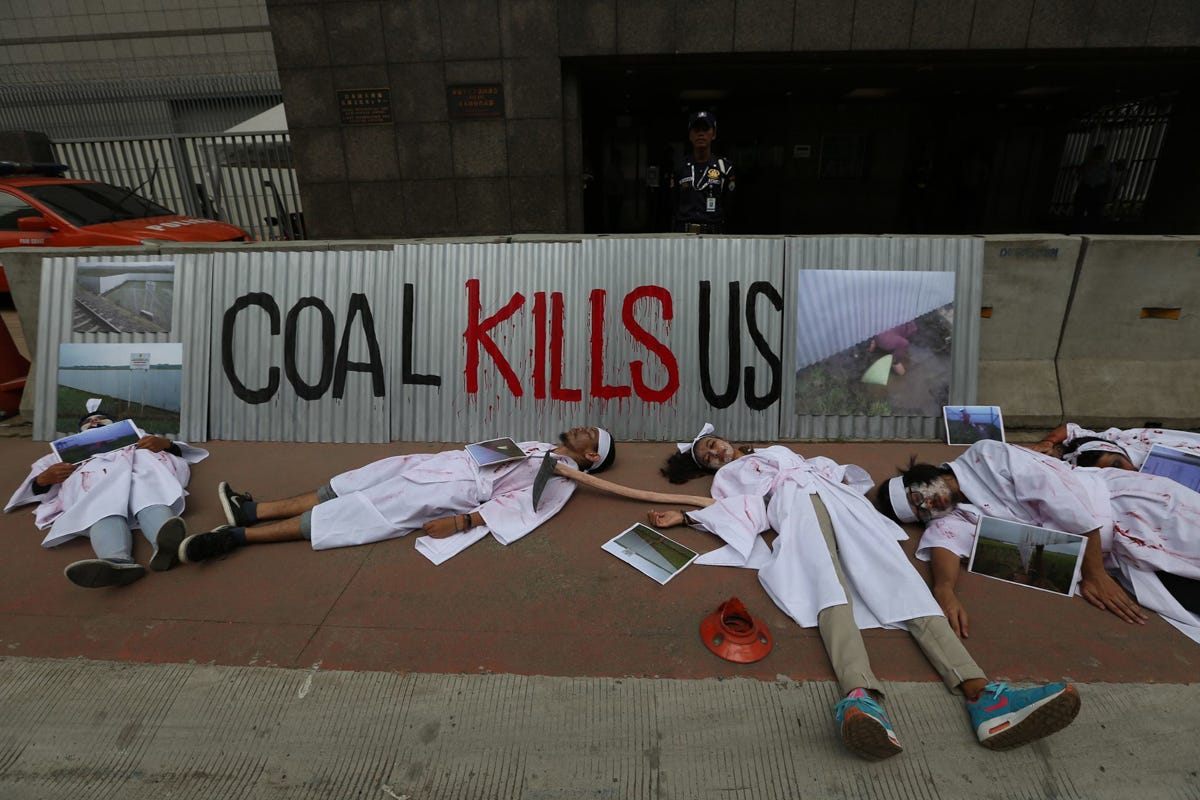
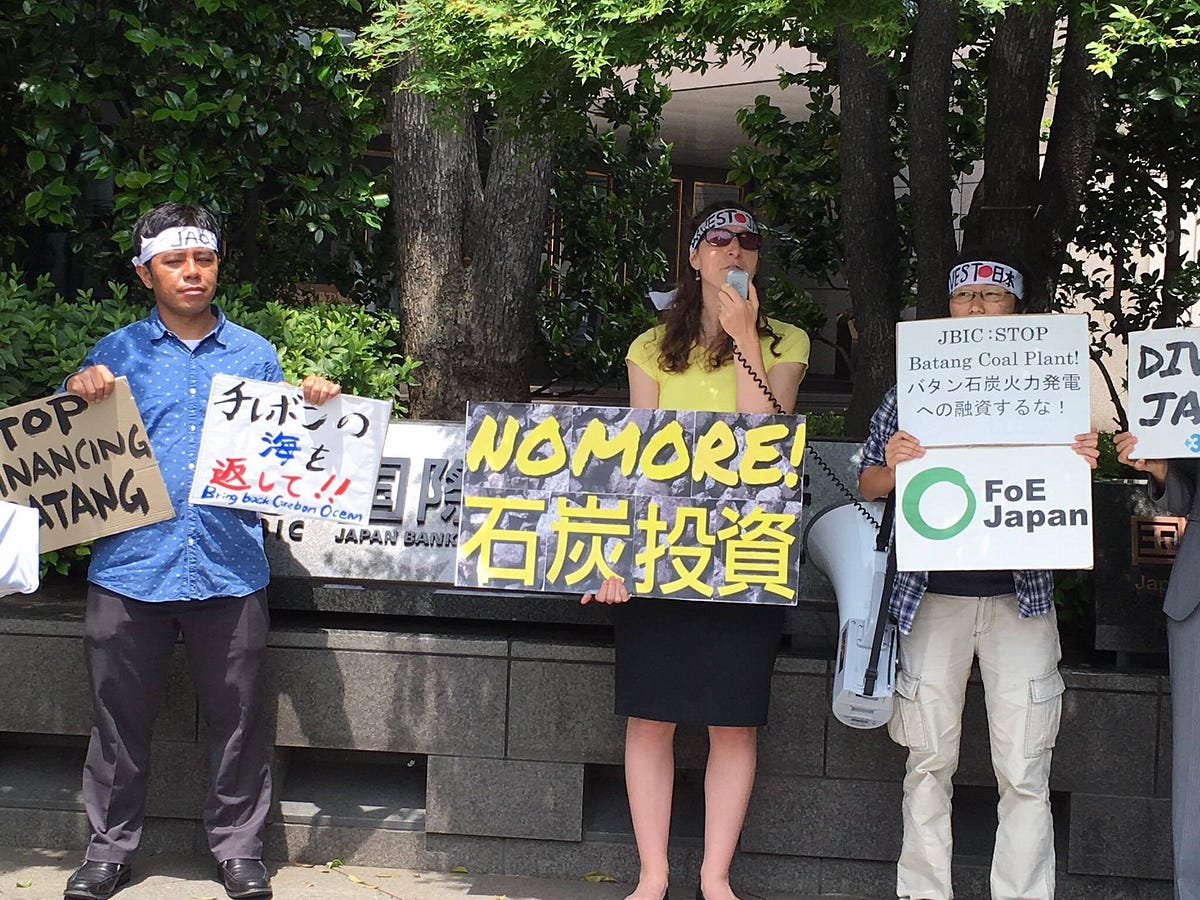
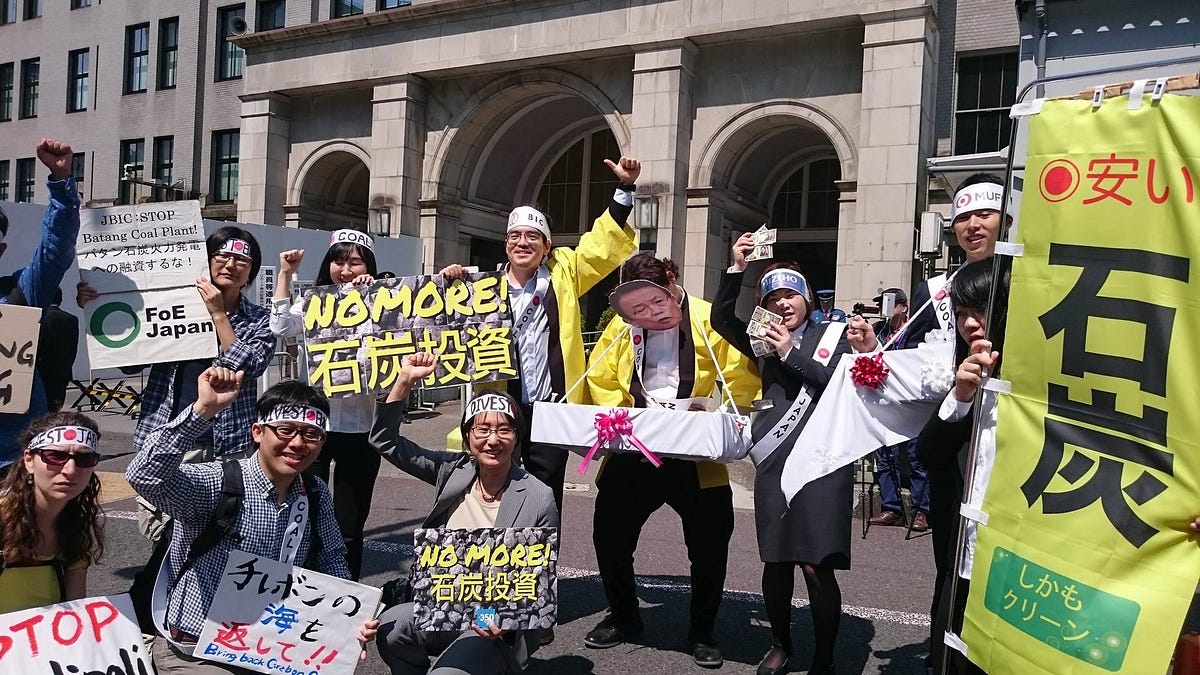
We strongly object to JBIC’s decision, which ignores the voices of local people who have continuously opposed the project for 5 years and the concerns of domestic and international civil societies about serious human rights violations and environmental, social and climate impacts caused by the project. — Statement from Friends of the Earth Japan and other Japanese NGOs.
How quickly Japan forgets its commitment to end fossil fuel subsidies
JBIC’s decision to finance Batang comes on the heels of Japan hosting the G7 Summit in late May. It was there that the leaders of the G7 countries committed to ending fossil fuel subsidies by 2025. How can Japan agree to end fossil fuel subsidies one month and then support a fossil fuel-fired power plant the next? This financing is a form of subsidy that without which the project very well might not go forward. The decision to finance Batang contradicts this commitment to end fossil fuel subsidies and continues Japan’s move backward away from the necessary transition to clean renewables.
Batang is not alone — Japan throws billions at fossil fuel projects
Unfortunately, the Batang coal plant is not the only fossil fuel project that Japan is financing. Japan continues to prop up the dying coal industry, financing over $22 billion in coal projects between 2007 and 2015. This is more than any other G7 country provides for coal projects. Japan provides even more for oil and gas projects, which include financing of liquefied natural gas projects in the United States, including in Louisiana and Texas, and Indonesia. LNG projects are even worse for the climate than coal. Meanwhile, Japan is betting on the wrong technologies and missing a major opportunity at home. Domestically, Japan has a wealth of renewable resources that it should use to transition away from fossil fuels, and its own studies have shown that Japan has 1,900 GW of wind energy resources alone. Instead of financing dirty fossil fuel projects abroad, Japan should take advantage of these resources and invest in clean and sustainable renewable projects both at home and abroad.
Take action: Click to tweet at Prime Minister Shinzō Abe and tell him to start financing renewables!
